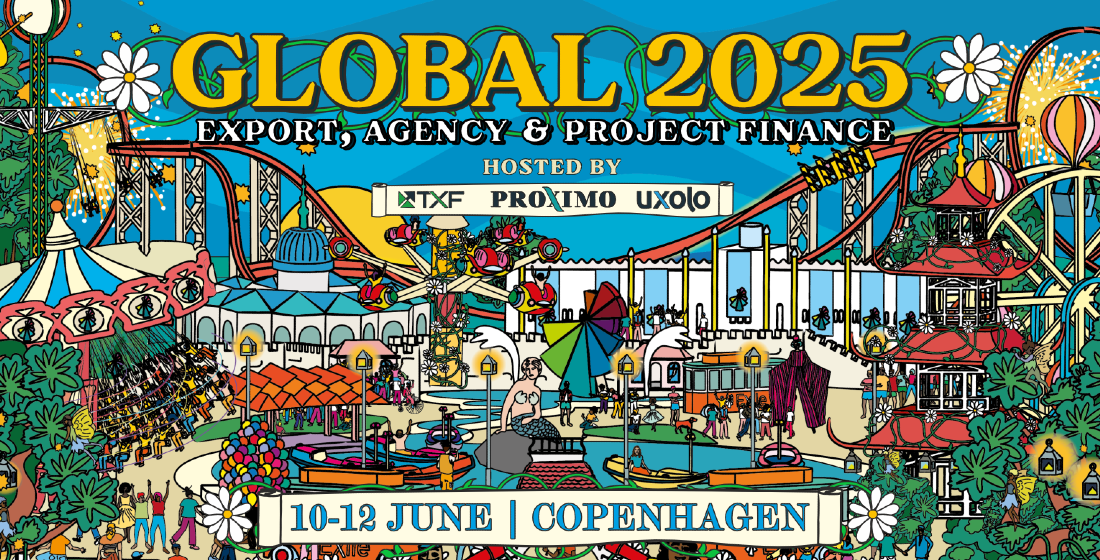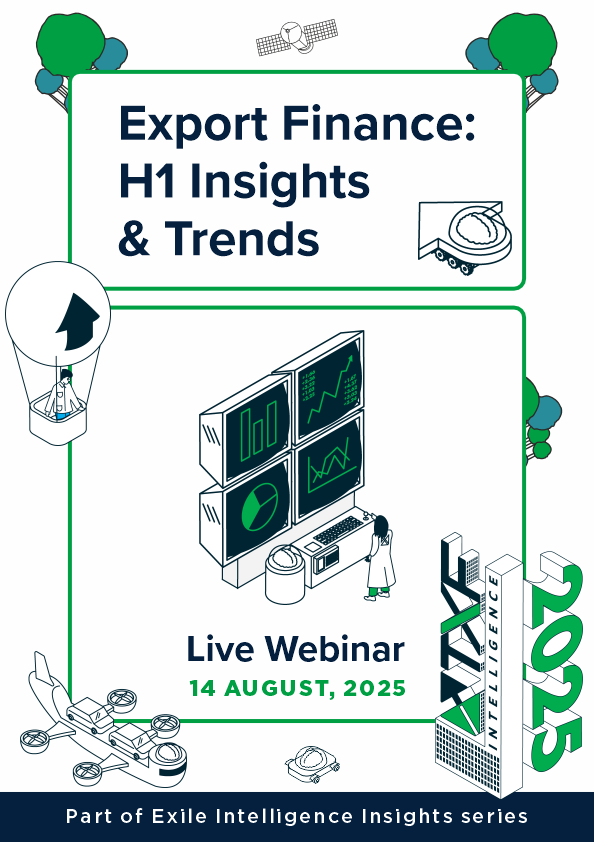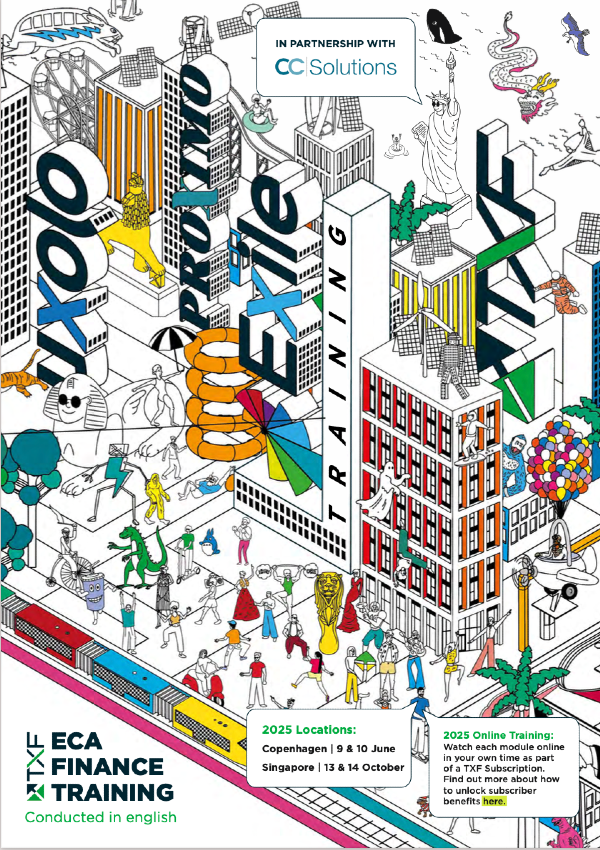ESG: Is the G silent for ECAs?
The G for governance is often silent in discussions of ESG, Environment, Social and Governance. TXF tries to unpick this and its importance for supply chain management for export credit agencies

Environment, Social and Governance (ESG) is the buzz phrase in our industry, but the governance element is sometimes overlooked. Good governance is one of those silent things, like plumbing, that you don’t always notice when it’s working, but should do if it goes wonky. Governance itself is a sprawling topic, but every so often the G combines with the E and the S and hits the headlines on international trade. If the G in ESG is silent, sometimes the ‘c’ (corporate) in front of governance is mute.
Take the example of supply chains for viscose that have come into the spotlight in recent weeks. It is literally the closed period for Finnish pulp and paper company Stora Enso until 23 April but on 1 April, in that silent period (and hence unable to comment to the media), Stora Enso announced it was globally in the process of exiting dissolving pulp business for viscose production “as a consequence of our strategic direction”. That move (not signalled in the company’s 2020 annual report) came after the South China Morning Post reported that the company’s exports of pulp for the production of viscose fabric in China might be associated with companies that could be making use of Uighur workers, something the authorities deny. The use of viscose/rayon has received less attention than that of natural cotton in Xinjiang in the media, but the environmental impact of the cellulose production process presents a case in point. Externalities of production and environmental impact can also combine to produce adverse social consequences.
For sure, forced labour allegations are not something any corporate wants to be associated with, however distantly. Nor do potential adverse environmental externalities play well with a company that has won awards for its ESG reporting. Arguably, good governance should prevail in this instance, but this example shows how vigilant, and adaptive, exporters need to be, and the degree to which human rights and environment and governance due diligence is key. It also shows how much corporate social reputations are a compelling force. And also how easy it is to be blindsided (or, cynics might argue, greenwashed).
This example didn’t specifically involve government export agency support but, for Export Credit Agencies (ECAs), the G in ESG, as one European ECA (off the record) told TXF, is, “candidly, a mixed picture that we’re not ready to talk about yet.” He adds: “We are playing an active role in green transactions and obviously we analyse and look at the governance of transactions, which is mandatory, but we don’t yet have the ability beyond our direct relationships with deals to translate that into wider comment on [governance] in ESG. Hopefully, in the near future, we will.”
Export Finance for Future (E3F) coalition is a welcome initiative launched on 14 April. It brings together seven governments such as France, Denmark, the Netherlands, Germany, Spain, Sweden and the UK. These governments are announcing they will adhere to a set of principles to “better integrate climate policy objectives in public export finance”.
Many ECAs are also embracing mandatory reporting initiatives such as the EU taxonomy. This is a classification system establishing a list of environmentally sustainable economic activities (using standardised definitions).
Regulators focus on climate from a funds’ perspective
Another part of the EU’s approach is the Sustainable Finance Disclosure Regulations (SFDRs). This means asset managers will have to make the information on their sustainability claims public (Level 1 SFDR came into operation on 10 March and Level 2 Regulatory Technical Standards will start to phase in from next January). While not perfect, SFDRs will have an impact on the corporate constituents of funds because fund managers will be looking more closely at “sustainability/’green’ activities and claims”. In short, the EU SFDRs do not mention ESG. Neither does it explicitly aim to cover social and governance aspects.
Meanwhile, the US Securities and Exchange Commission (SEC) has been making it clear it wants better disclosure on ESG. Its focus remains on disclosures to investors in funds, and its vision is closely directed toward climate risks, following the creation of a taskforce on climate and ESG on 4 March and a new website launched on 22 March. It will be looking at material gaps or mis-statements in disclosures of climate risks under rules that already exist and will look closely at investment advisors and funds compliance and disclosure on ESG. For governance, to quote directly from the SEC, fund managers (specifically), “focusing on ESG generally examine criteria within the environmental, social, and/or governance categories to analyse and select securities…the governance component might focus on issues such as how the company is run – for example, transparency and reporting, ethics, compliance, shareholder rights, and the composition and role of the board of directors.”
The Financial Stability Board (an international body that monitors and makes recommendations about the global financial system) has a Task Force on Climate-related Financial Disclosures (TCFD) that delivered a status report last September. In this, regarding governance, according to a study by Vigeo Eiris Analysts (which looked at the degree to which climate-related risks and opportunities have been incorporated into governance, strategy, and risk management structures for a given company and to see how they aligned with the TCFD recommendations) only 11% of companies disclosed at least one element that is recommended by the TCFD in this pillar. Comparing across regions, a larger share of companies in Europe and North America disclosed on governance.
Disclosure improving in certain markets
The head of sustainability at a major agri trader told TXF about its ESG reporting process, which involved collaborating with Sustainalytics [a company that provides ESG ratings/information] to measure KPIs concerning ESG. “From our perspective, our role is to open up our books to Sustainalytics, so they can evaluate our performance based on a wide spectrum of sustainability indicators from environmental aspects such as carbon, water, and waste management to social issues, and human rights. They also have a range of indicators covering social elements, to see how well we are managing these issues in terms of risk management, and similarly, how well we are doing in terms of governance and transparency. From our side, we share internal and external documents, policies, previous reports, work procedures and anything else that we can to allow Sustainalytics to make an informed assessment of how the company is performing."
ESG raters such as Sustainalytics, MSCI and ISS (among others) do provide companies (most predominantly in the developed world) with ratings/information that include extensive governance metrics.
…But not yet others
What practically can ECAs do to improve governance? Social and governance-related risks are particularly high in markets that many ECAs are keen to export to, notably Africa. Exporters have a key role to play to stand against governance issues such as bribery and corruption and to meet the governance elements of ESG, but they may need more help from governments. Good governance and strong enforcement of anti-bribery and corruption in jurisdictions is not necessarily being translated into export markets.
Mark Norris, Partner at Sullivan and Deputy Chair at British Exporters Association (BeXA) notes there is an opportunity for ECAs and related departments such as trade and foreign affairs to offer practical help with governance in doing deals in countries that are low on Transparency International rankings, particularly for SME exporters, a segment ECAs profess they are keen to encourage.
Transparency International’s ‘Global Corruption Barometer – Africa’ highlighted that more than one out of four people – around 130 million people in the 35 African countries surveyed – had paid a bribe to access essential public services such as health care and education. The UN has highlighted bribery and corruption is of ‘one of the biggest impediments to achieving the Sustainable Development Goals (SDGs).’
Norris says: “The UK prides itself on having some of the toughest anti-bribery legislation. Given the important role that trade and exports can have in meeting the UN’s SDGs it is important that anti-bribery legislation does not act as a drag on exporters. The cost of compliance can be significant for SME exporters. This is not to say that the legislation should be watered down but rather to ensure that the cost of compliance does not become a barrier to exporting, governments need to be more proactive in supporting exporters address these risks.”
Become a TXF subscriber for unrestricted access to TXFnews.com 365 days a year
Contact us for individual and team rates by emailing subscriptions@txfmedia.com
Take a look below at a selection of exclusive subscriber articles published last week
Smaller and freer: Brazilian solar steals the renewables spotlight
A year of pandemic has accentuated structural changes to the Brazilian renewables market that began before 2020. Solar projects and the free energy market are where most interest is now focused – and that looks set to continue for the next few years....Read on here
2021: A new dawn for the climate economy
The Covid-19 pandemic has accelerated the climate change agenda and 2021 could prove to be a line in the sand for the green economy. Orbian's CEO Tom Dunn and Climate & Capital Media's Peter McKillop joined TXF TV to discuss the future of the climate economy post Covid-19 as well as the mainstreaming of climate considerations within the investment agenda and political sphere....Read on here
Advanced Power amends Ohio gas-fired plant term B loan
Advanced Power has sealed a cash flow sweep amendment to the term loan B backing its...Read on here
Danish Agro taps Schuldschein market with €125m issue
Cooperative farming supply company Danish Agro has issued a €125 million ($148 million) Schuldschein placement, split into three, five and...Read on here
Finerge closes EDPR acquisition portfolio refinancing
Finerge has closed on the refinancing of a 242MW onshore wind portfolio in Spain; assets it acquired for...Read on here
Adani's Rajasthan renewables hybrid debt out to syndication
Adani Green Energy’s certified green project debt package, designed to initially fund its under-construction 1.69GW hybrid renewables portfolio (solar and wind) in Rajasthan, has been...Read on here
Fabbrizzi named Americas renewables and infra head at DNB
Emilio Fabbrizzi has been promoted to head of Americas renewables and infrastructure at DNB Bank. Fabbrizzi was officially elevated from his role as head of Latin America project finance at the end of March. His new role will expand the scope of his responsibilities to the...Read on here





